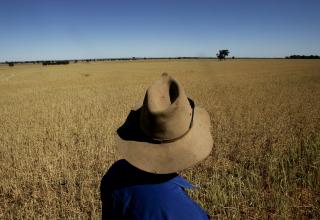Eco issues slow growth
 Experts say trillions of dollars in worker productivity could be lost due to eco-anxiety and ‘lie-back’ lifestyles.
Experts say trillions of dollars in worker productivity could be lost due to eco-anxiety and ‘lie-back’ lifestyles.
Griffith University’s Professor Emeritus Ralf Buckley has suggested that nature and climate anxieties could predict future social behaviours, akin to how consumer sentiment forecasts purchasing and investment patterns.
Professor Buckley says findings from the international Global Burden of Disease Study reveal that anxiety and depression are not only widespread but also worsening. The cost of lost productivity due to this is enormous.
“Economic costs are up to 16 per cent of global GDP, with 19 days per year on average lost for every person worldwide,” he stated.
He attributes these mental health challenges to various crises, including those related to climate, biodiversity, and livelihoods.
The comments come ahead of a forthcoming article led by Professor Thomas Pienkowski in the UK.
Professor Pienkowski reportedly asserts that health-sector interventions, such as counselling and chemotherapies, only address the symptoms of these issues rather than their root causes.
“Anxiety and its economic costs will therefore keep growing until we can achieve major changes in global economic and political systems,” Buckley says.
Buckley proposed that the levels and types of eco-anxiety could serve as indicators of people’s expectations regarding the future of the planet.
He noted that higher levels of eco-anxiety might lead more individuals to adopt 'lie-flat' lifestyles - characterised by having fewer children and lower financial ambitions.
“Lie-flat social changes at large scale are just what is needed to reduce human impacts on the Earth, before it is incapable of supporting its still-growing human population,” he said.
Therefore, Buckley suggests that monitoring shifts in eco-anxiety types and intensities and correlating them with lifestyle choices could help predict future societal changes on a global scale.







 Print
Print